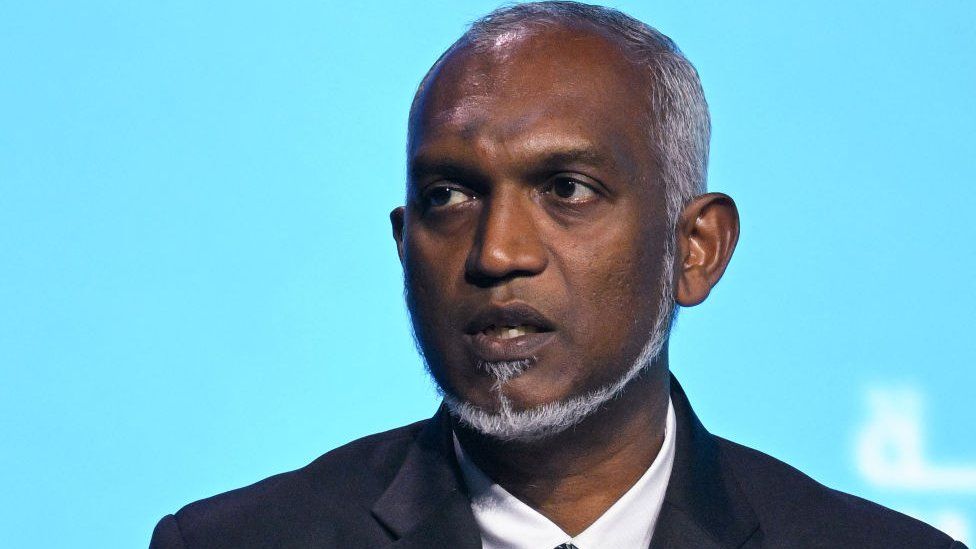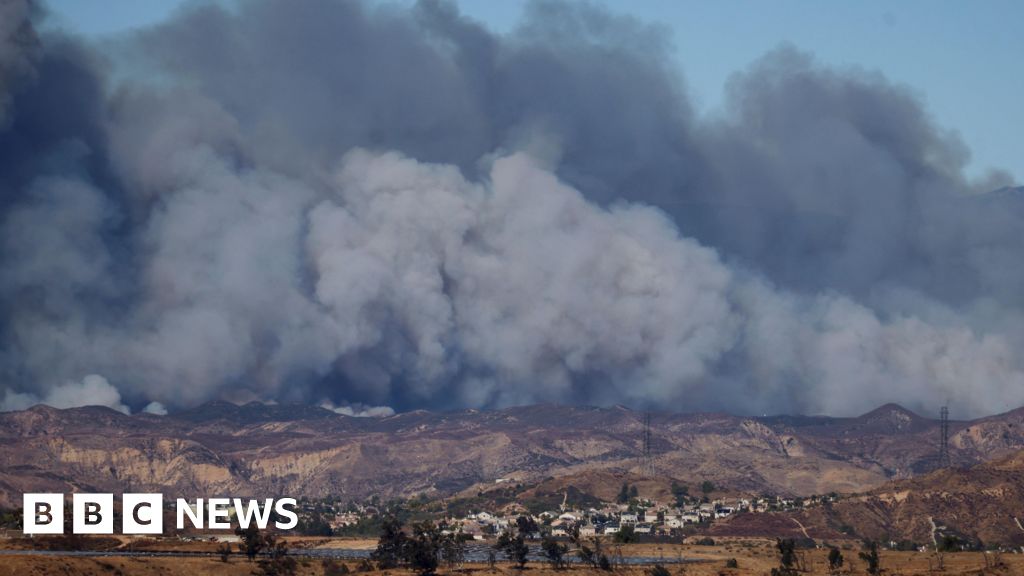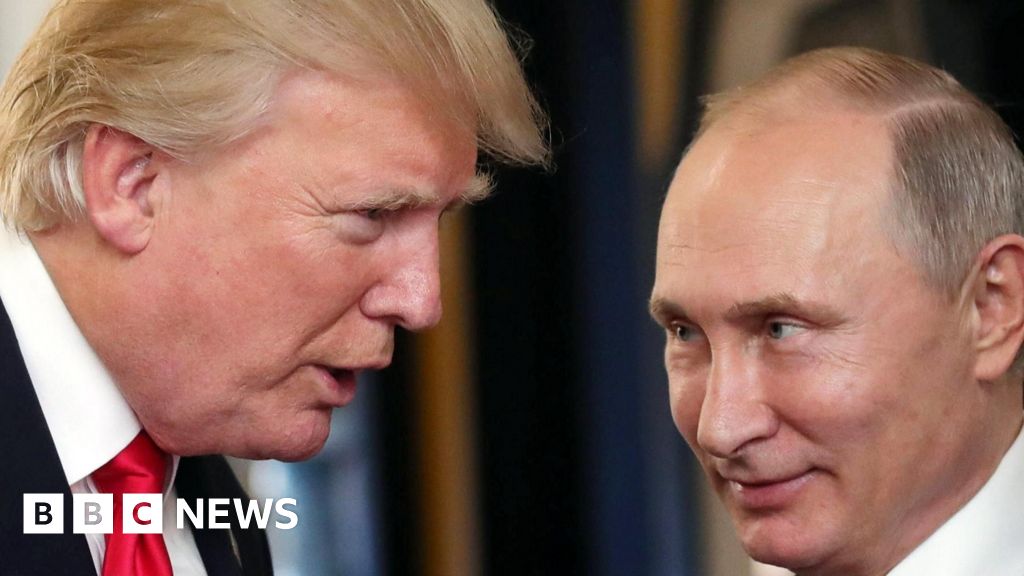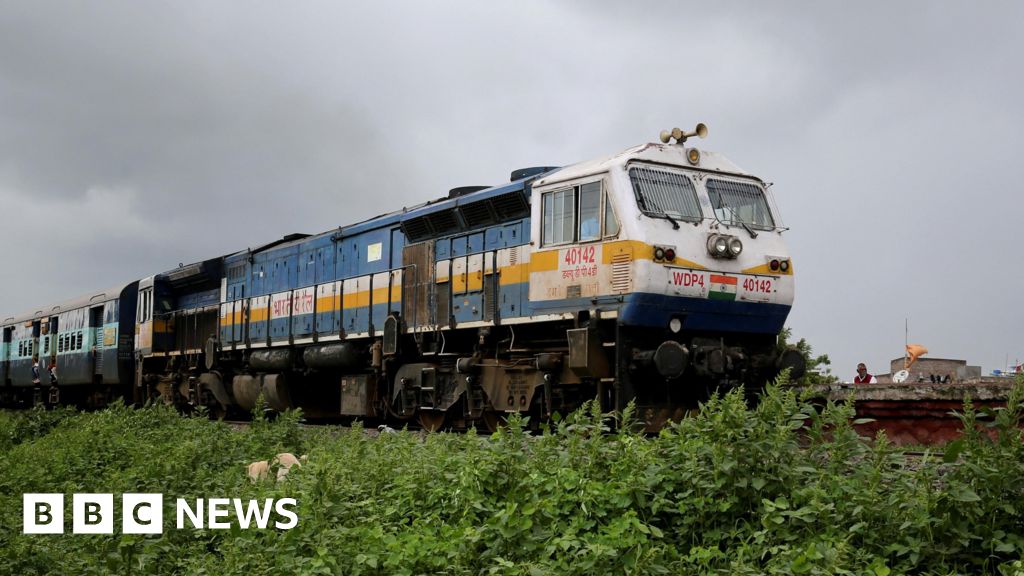ARTICLE AD BOX
 Image source, Getty Images
Image source, Getty Images
Maldives President Mohamed Muizzu came to power after a high-voltage 'India Out' campaign
By Anbarasan Ethirajan
BBC News
India is set to pull its first batch of military personnel from the Maldives on Sunday as the island nation moves closer to China.
The phased withdrawal of about 80 Indian troops must meet a May deadline set by President Mohamed Muizzu, who is widely seen to be pro-China.
India has said its military personnel were stationed in the Maldives to maintain and operate two rescue and reconnaissance helicopters and a small aircraft it had donated years ago. Removing Indian troops was an election promise made by Mr Muizzu, who came to power in November.
India has long wielded influence over the Maldives, whose strategic location in its backyard allowed it to monitor a crucial part of the Indian Ocean. But the relationship between the countries has soured over the past few months, partly due to Mr Muizzu's strong rhetoric against Delhi. It's a gap China is looking to exploit as the Asian powers jostle for influence in the region.
Even then, Delhi and Male (the capital of the Maldives) managed to agree that Indian civilian technical staff would replace military troops to operate the aircraft - the first team has already reached the islands.
"The aircraft will remain in the Maldives, and Indian [civilian] personnel will continue to be there to maintain them. So both sides seem to have reached a compromise," says Shyam Saran, a former Indian foreign secretary.
Some in the Maldives see the replacement of troops by civilians as a climbdown by Mr Muizzu after his high-voltage 'India Out' campaign.
Mr Muizzu's office did not respond to requests for comment.
Image source, Reuters
Image caption,Mr Muizzu went to China on a state visit in January
Some analysts warn that the Maldives, a nation of just over half a million people, faces the risk of being caught up in the Asian power rivalry.
China has loaned billions of dollars to the Maldives over the years, mostly for infrastructure and economic development.
Both Beijing and Male elevated their ties to a comprehensive strategic partnership in January when Mr Muizzu went to China on a state visit - he is yet to visit India, unlike previous Maldivian leaders.
Earlier this week, the Maldivian government signed a "military assistance" agreement with China that has caused some concern in Delhi.
The Maldivian defence ministry said the agreement was "gratis" (without payment) without providing more details. But addressing a public meeting on Tuesday, Mr Muizzu said China would offer non-lethal weapons for free as well as train the Maldivian security forces (both India and the US have trained the Maldivian military so far).
"This is unprecedented. It's the first time the Maldives has signed a defence agreement with Beijing to provide military assistance," Azim Zahir, a Maldivian political analyst, told the BBC.
"We knew that Mr Muizzu would forge closer ties with China in terms of investment and capital, but no one expected him to go to this extent," he said.
But Beijing denies having any long-term military plans in the Maldives.
"It's a normal relationship between two countries. If China wants to have a military presence in the Indian Ocean, maybe it has better choices than the Maldives," says Dr Long Xingchun, president of the Chengdu Institute of World Affairs think-tank.
Image source, Getty Images
Image caption,The Maldives depends on India for imports of essential food items, medicines, and construction material
Despite Beijing's assurances, many believe that China is moving swiftly to take advantage as the previous government, led by President Ibrahim Mohamed Solih, had an "India-first" approach.
During his election campaign, Mr Muizzu had accused the previous administration of not disclosing the fine print of Male's agreements with Delhi. He now faces similar criticism.
"We don't have any details of most of the agreements he signed during his visit to Beijing. Mr Muizzu is no better than the previous government when it comes to disclosing details of such accords," says Mr Zahir.
Last month, Mr Muizzu's administration allowed a Chinese research ship, Xiang Yang Hong 3, to dock at Male despite opposition from Delhi. Male argued that it was a port call "for rotation of personnel and replenishment".
But that did not convince some Indian experts who feared it may be a mission to collect data which could be used by the Chinese military later in submarine operations.
Amid the ongoing irritants in relations, Delhi has commissioned a new naval base in the Indian archipelago Lakshadweep, close to the Maldives.
The Indian navy said the INS Jatayu in the Minicoy island would enhance its efforts in "anti-piracy and anti-narcotics operations in the Western Arabian Sea".
While some have read it as a message to Male, Indian experts say the move is not a response to the current tensions.
"I don't think that is something new. As far as I am aware, this has been in the works for some time," said Mr Saran, the former Indian diplomat.
Mr Muizzu's anti-India moves have also worried many in his country. The Maldives depends on India for imports of essential food items, medicines and construction material. Post the Covid pandemic, India was also sending the highest number of tourists to the Maldives.
But this has changed after a recent controversy which led to a social media call for Indians to "boycott" the Maldives after some officials made controversial comments about Prime Minister Narendra Modi.
The controversy broke while Mr Muizzu was in Beijing, and he asked Chinese authorities to start sending more tourists to regain the top spot the country held before the pandemic.
Since then, Chinese tourists have started visiting in sizeable numbers. According to tourism ministry data, of the nearly 400,000 tourists who visited the Maldives in the first two months of the year, 13% were from China. India has slipped to the fifth position.
Some also expect Mr Muizzu's rhetoric to intensify as the parliamentary elections on 21 April draw closer and he aims for a majority in the house.

 10 months ago
58
10 months ago
58








 English (US) ·
English (US) ·